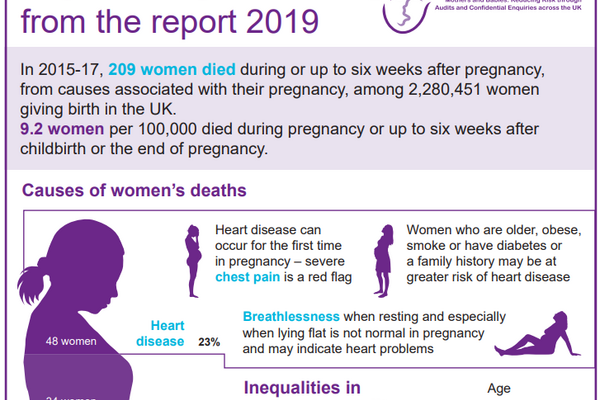We were delighted to be able to play a part in the development of the new MBRRACE report, and welcome its emphasis on the many health and social factors at play in the lives of women who die during or in the year after pregnancy. This represents a major step forward in understanding the significance of inequality and multiple disadvantage in maternity care.
As the report clearly states, and as we have been emphasising for many years, there is an urgent need for more data to be collected on the nature of the multiple disadvantages women may be facing during pregnancy, birth and early motherhood, and for all the services working with those women to be in a better position to understand and respond to the complex, specific nature of their needs.
The women whose deaths are explored in this vital report represent the most tragic of outcomes, and lessons must be learned from these tragedies in order to improve care across the board. The number of deaths are thankfully few, but they are still too many, and there are many more near-misses, failures, and missed opportunities that also carry life-long implications for thousands of women and their families.
The impact of inequality is writ large in this latest report, and with the weight of other evidence there should be no doubt that multiple disadvantage changes things for women, and for the professionals working with them. Where three or more health and social factors are co-occurring in a woman’s life, the issues they create are far greater than the sum of their parts.
Both the NHS Long Term Plan and the Maternity Transformation Programme offer strong foundations for addressing these inequalities, through enhanced continuity of carer for example. But to narrow the gaps that exist, we need to create care that reflects the complexity of multiple disadvantage, that is fully trauma-informed, and delivered through specialist pathways, co-produced with women who have personal experience of the realities of pregnancy and motherhood amidst such disadvantage. And we all need to ensure that those who are most seldom heard are able to have a voice, during and after their care, through supportive relationships with professionals, appropriate complaints procedures, and Maternity Voices Partnerships. Theirs are the voices that hold the key to real, meaningful change.




